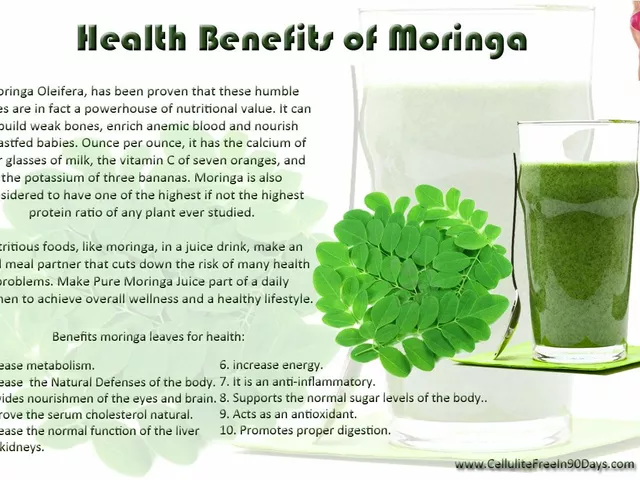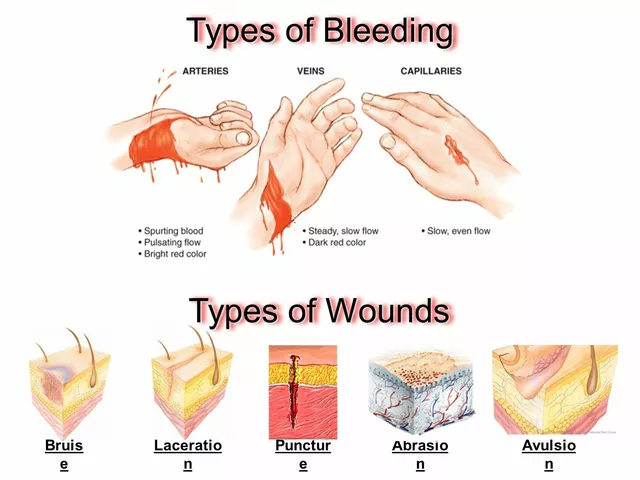Heartburn hits hard - that burning feeling behind your breastbone, the sour taste in your mouth, the sleepless nights because lying down makes it worse. If you’ve been there, you know how quickly it can ruin your day. For millions of people, famotidine is the go-to fix. It’s not new, it’s not flashy, but it works - and if you’re using it right, it can turn your worst nights into quiet, comfortable ones.
What is famotidine?
Famotidine is a medicine that reduces the amount of acid your stomach makes. It belongs to a class of drugs called H2 blockers. Unlike antacids like Tums or Maalox that just coat the acid, famotidine stops your stomach from producing so much in the first place. That’s why it lasts longer - up to 12 hours - and why it’s often taken before meals or at bedtime to prevent heartburn, not just after it starts.
It’s sold under brand names like Pepcid and Pepcid AC in the U.S., and as generic famotidine everywhere else. You can get it over the counter in 10 mg and 20 mg tablets, or in higher doses by prescription. The OTC version is meant for occasional heartburn. If you’re taking it daily for more than two weeks without improvement, it’s time to see a doctor.
How does famotidine work?
Your stomach lining has cells that produce acid when triggered by histamine - a chemical your body releases during digestion. Famotidine blocks the H2 receptors on those cells. Think of it like turning off a faucet instead of mopping up the spill. Less acid means less chance of it rising into your esophagus and causing that burning sensation.
This mechanism is different from proton pump inhibitors (PPIs) like omeprazole (Prilosec) or esomeprazole (Nexium). PPIs shut down acid production more completely and take longer to kick in - usually a day or two. Famotidine works faster, often within an hour. That’s why people reach for it when they need quick relief before a big meal or after eating something spicy.
When should you take famotidine?
Timing matters. For preventing heartburn, take it 15 to 60 minutes before eating. If you know you’re going to have pizza, tacos, or coffee with dessert, popping a 20 mg tablet beforehand can stop the problem before it starts. For nighttime heartburn, take it right before bed. Many people find their symptoms worse at night because lying flat lets acid flow back more easily.
Don’t crush or chew the tablets. Swallow them whole with water. If you’re using the oral suspension, shake the bottle well first. Stick to the dose on the label unless your doctor says otherwise. The standard OTC dose is 10 mg or 20 mg once daily. Higher doses like 40 mg are prescription-only and used for ulcers or GERD.
How long does famotidine last?
Most people feel relief within 30 to 60 minutes after taking it. The effect lasts up to 12 hours, which is longer than most antacids (which wear off in 2-4 hours). That’s why it’s a favorite for people who get heartburn regularly - you don’t need to keep popping pills all day.
But here’s the catch: it doesn’t cure the cause. If your heartburn comes from a hiatal hernia, obesity, or chronic GERD, famotidine just masks the symptoms. That’s fine for occasional use. But if you’re relying on it daily for more than two weeks, you’re not fixing the root problem. You might need lifestyle changes, or even further testing.

Famotidine vs. other heartburn meds
Let’s break down how famotidine stacks up against other common options.
| Medication Type | Example Drugs | Onset of Action | Duration | Best For |
|---|---|---|---|---|
| Antacids | Tums, Rolaids | Immediate | 30 min-2 hours | Sudden, mild heartburn |
| H2 Blockers | Famotidine, Ranitidine (withdrawn) | 1 hour | 10-12 hours | Preventing heartburn, nighttime relief |
| PPIs | Omeprazole, Esomeprazole | 1-4 days | 24 hours | Chronic GERD, healing ulcers |
Famotidine is the middle ground: faster than PPIs, longer-lasting than antacids. It’s ideal if you know your triggers - like weekend BBQs or late-night snacks - and want to plan ahead. PPIs are stronger and better for daily, long-term use. But they come with more side effects and risks if used too long.
Side effects and safety
Famotidine is generally well-tolerated. Most people feel nothing at all. But some report mild side effects:
- Headache
- Dizziness
- Constipation or diarrhea
- Fatigue
These usually go away on their own. Serious side effects are rare but possible - especially with long-term use or in older adults. These include confusion, rapid heartbeat, or signs of kidney problems (like swelling in the feet or reduced urination). If you’re over 65 or have kidney disease, your doctor may lower your dose.
One thing to watch: in 2020, the FDA pulled ranitidine (Zantac) off the market because of a cancer-linked contaminant. Famotidine was never affected. It’s still considered safe and is now the most commonly recommended H2 blocker.
Who should avoid famotidine?
You shouldn’t take famotidine if:
- You’re allergic to it or any H2 blocker
- You have severe kidney disease (without doctor supervision)
- You’re under 12 years old (unless prescribed)
Also, if you’re taking other medications, check for interactions. Famotidine can affect how your body processes drugs like ketoconazole, atazanavir, or certain antibiotics. Always tell your pharmacist or doctor what else you’re taking.
It’s generally safe during pregnancy and breastfeeding, but talk to your provider. Many women use it for heartburn in the third trimester - it’s one of the few heartburn meds recommended by OB-GYNs.
When to see a doctor
Heartburn isn’t always harmless. If you have any of these signs, don’t wait:
- Heartburn more than twice a week
- Difficulty swallowing
- Unexplained weight loss
- Vomiting blood or black, tarry stools
- Chest pain that spreads to your arm, neck, or jaw
The last one could be a heart attack. Don’t assume it’s just acid. If you’re unsure, get checked.
Chronic heartburn can lead to Barrett’s esophagus - a condition that increases cancer risk. That’s why long-term users of any acid reducer should get monitored by a doctor, even if they feel fine.

How to use famotidine safely
Here’s a simple plan to get the most out of famotidine without relying on it too much:
- Use it for occasional heartburn only - no more than 14 days in a row without talking to a doctor.
- Take it 30 minutes before meals you know will trigger symptoms.
- Don’t combine it with other acid reducers unless directed.
- Keep a food diary. Common triggers: coffee, chocolate, alcohol, citrus, fried food, spicy dishes.
- Sleep with your head elevated. Even 6 inches helps.
- Wait at least 3 hours after eating before lying down.
- Lose weight if you’re overweight - even 5-10 pounds can cut heartburn in half.
Famotidine isn’t a magic pill. It’s a tool. Use it smartly, and pair it with smart habits. That’s how you stop the cycle of heartburn for good.
Can famotidine be used long-term?
Some people - especially those with GERD or a history of ulcers - take famotidine daily for months or even years. That’s okay if your doctor says so. But long-term use comes with risks:
- Reduced absorption of vitamin B12
- Higher risk of bone fractures (especially in older adults)
- Increased chance of gut infections like C. diff
That’s why doctors prefer to use the lowest effective dose for the shortest time. If you’re on it daily, ask your doctor about periodic breaks or switching to lifestyle changes. Some people find that cutting out trigger foods and losing weight lets them stop meds entirely.
Don’t quit cold turkey if you’ve been on it for months. Your stomach might overproduce acid for a few days - that’s rebound hyperacidity. Ease off slowly, under medical guidance.
What else helps with heartburn?
Famotidine works best when paired with other strategies:
- Eating smaller meals
- Avoiding late-night snacks
- Wearing loose clothing
- Quitting smoking
- Reducing stress - anxiety can make acid reflux worse
- Trying ginger tea or chewing gum after meals (stimulates saliva, which neutralizes acid)
There’s no one-size-fits-all fix. But many people find that combining famotidine with just two or three lifestyle changes cuts their symptoms by 80%.
Can I take famotidine every day?
You can take famotidine daily if prescribed by a doctor, especially for conditions like GERD or ulcers. But over-the-counter famotidine is meant for short-term use - no more than 14 days without medical advice. Long-term daily use without supervision increases risks like vitamin B12 deficiency and bone fractures.
Is famotidine better than omeprazole?
It depends on your needs. Famotidine works faster and is better for occasional heartburn or preventing symptoms before meals. Omeprazole (a PPI) is stronger and better for chronic GERD or healing damage to the esophagus. PPIs take longer to work but provide longer-lasting acid control. Many people use famotidine for quick relief and switch to PPIs only if symptoms persist.
Does famotidine cause weight gain?
No, famotidine is not linked to weight gain. In fact, some people lose weight after starting it because they can eat without fear of heartburn. However, if you start eating more trigger foods because you feel protected by the medication, that could lead to weight gain - not because of the drug, but because of your behavior.
Can famotidine cause diarrhea?
Yes, diarrhea is a possible side effect, though it’s uncommon. It usually happens in the first few days and goes away on its own. If it lasts more than a few days or is severe, stop the medication and talk to your doctor. It could also be a sign of a gut infection, especially if you’ve been on acid reducers for a long time.
Is famotidine safe for seniors?
Famotidine is generally safe for older adults, but kidney function declines with age, which can cause the drug to build up in the body. Doctors often lower the dose for people over 65. Watch for confusion, dizziness, or unusual fatigue - these can be signs of too much medication. Always tell your doctor about other medications you’re taking.
How soon can I eat after taking famotidine?
You can eat right after taking famotidine - in fact, it’s best to take it 15 to 60 minutes before meals to prevent heartburn. Taking it before eating gives it time to block acid production before food triggers it. Don’t wait until after you feel the burn - it won’t work as well.
Final thoughts
Famotidine isn’t the newest heartburn drug, but it’s one of the most reliable. It’s affordable, widely available, and works for most people when used correctly. It’s not a cure, but it’s a powerful tool to regain control - whether you’re avoiding spicy food at a barbecue or just trying to sleep through the night.
The key is using it as part of a plan, not a crutch. Pair it with smart habits, know your triggers, and don’t ignore warning signs. If you’ve been relying on it for more than two weeks, it’s not a sign you need more medicine - it’s a sign you need to find out why it’s happening in the first place.





Erin Corcoran
OMG YES. 😍 I keep a 20mg Pepcid in my purse like it’s gum. Spicy taco Tuesday? Preemptive strike. BBQ with the in-laws? Already taken. It’s the unsung hero of my social life. 🙌
Kathy Pilkinton
People treat famotidine like it’s a magic wand, but if you’re popping it daily because you can’t stop eating nachos at 2 a.m., maybe the problem isn’t your stomach-it’s your life choices. 😏
shivam mishra
Just wanted to add a real-world tip: if you’re on famotidine long-term, get your B12 levels checked. I didn’t know I was deficient until I started getting weird numbness in my fingers. Doc said it was likely from the med-I switched to lifestyle changes and now I’m off it entirely. No more midnight heartburn, no more supplements. Win-win.
Amanda Nicolson
I used to think heartburn was just part of being a human who loves pizza and wine-until I started sleeping with my head propped up on three pillows like a mummy at a Halloween party. Then I started taking famotidine before bed, and let me tell you, the difference was like going from a tinny AM radio to a surround-sound concert. I cried. Not because I was sad-because I could finally sleep without feeling like my chest was on fire. 🕯️
Jackson Olsen
Anyone else notice famotidine doesn’t work as well if you drink soda after? Just saying. 🤔
Penny Clark
soo many peopel dont realize famotidine is for prevenion not cure 😭 i used to take it after i felt the burn and wonder why it didnt work… then i learned to take it 30 min before tacos and life changed. also ginger tea after meals is a game changer!! 🌿
Mike Gordon
My grandpa took ranitidine for 20 years. When Zantac got pulled he switched to famotidine and said it felt like the same pill with a new name. He’s 82 and still takes 20mg nightly. No issues. Just don’t mix it with antacids. That’s when things get messy.
Mansi Gupta
As someone from India where spicy food is daily life, I’ve tried everything-turmeric milk, mint tea, even traditional Ayurvedic remedies. Nothing compares to a simple 20mg famotidine tablet before dinner. It’s not glamorous, but it’s honest medicine. I appreciate that it doesn’t promise miracles-just relief.
Jim Allen
Let’s be real-famotidine is just capitalism’s answer to not changing your diet. You can’t be a 30-year-old who eats pizza for breakfast and then blames your stomach. The real fix? Put the pepperoni down. 🍕❌
Holly Dorger
Just wanted to say-I’ve been on famotidine for 6 months now for GERD. I’m not proud of it, but it’s helped me keep my job (no more hiding in the bathroom after lunch). I’m slowly cutting back, eating smaller meals, and walking after dinner. It’s not perfect, but it’s progress. You’re not alone if you rely on this. 💙
Nate Girard
Side note: I started taking famotidine before workouts and noticed less acid reflux during HIIT. Who knew? Now I take it before spin class like it’s pre-workout. Not medically advised, but it works for me. YMMV.
Niki Tiki
Why do Americans need pills for everything? In my country, we just don’t eat junk. Problem solved. Stop buying into Big Pharma’s lies.
Scott Dill
My buddy took famotidine for years and then stopped cold turkey. Felt like a dragon was breathing fire down his throat for 3 days. Never do that. Taper off. Your stomach will thank you. Also, elevate your bed. It’s not a gimmick-it’s science.
Arrieta Larsen
My OB-GYN recommended it during my third trimester. I was skeptical-until I slept through the night for the first time in months. No more sitting upright with a pillow fortress. I still take it occasionally now, even postpartum. Safe. Simple. Effective.